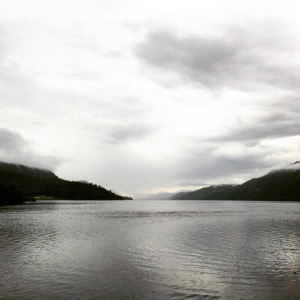You’re planning a vacation. It’s going to be amazing. Two weeks in a secluded hotel with your best friend, just a short hike to some of the best remote beaches on the island. You’ve been looking forward to this get away for months. Only thing that will make it better will be one of those drinks they serve you in a coconut. The biggest worry you have is a bad sunburn, maybe a wicked bug bite.
But life doesn’t work out like that. Yes, most vacations go off without a hitch. You go, enjoy your coconut drinks, fill your Instagram with artsy sunset photos from your hotel balcony, and you come home with a tan (or sunburn).
Or, in a blink of an eye, it can go very badly, very quickly.
I’m going to be honest, I always thought that getting travel insurance was slightly pointless (okay, mostly just expensive), but a necessary evil. I’ve lived abroad for two years of my life now (or if you count all trips, nearly 10% of my life has been spent outside of Canada), and the closest I ever came to using it was in London. For a bad blister. and I just bought some fancy plastic things and wore socks and sandals and they healed up more or less.
Of course, I’m young. I still live in the mentality of “it will never happen to me”. I’ve seen an American friend in Australia admitted to the hospital for Gastro. A British co-worker in Catalonia rushed to the hospital after she broke (shattered?) her knee. But I have never really been able to go “that could have easily been me as it was them”. However, life has a way to snap sense in you to, unfortunately at the expense of others.
It is not my place to talk about the case I’m thinking of in detail, but the result is that a man is now facing a very uncertain future from a mundane, routine vacation activity.
What I think I’m trying to convey through this, is that it isn’t just when you’re going paragliding over active volcanoes or hitchhiking across war-torn countries that you need to think about the “what if”s. The “what if”s don’t care about how cool your activity is, you can be a victim of the “what if” if you’re smelling a flower or if you’re crawling into a giant venus fly trap.
Luckily, I am from an amazing country (and University) who has programs which I have had the privilege of never using, but I want to spread the word about them anyway because you just never know.
First, for all my Canadians, the Registry for Canadians Abroad. This is a free service which allows the government to contact you and assist you if there is an emergency in the country you’re in, or if there is a family emergency back home. An experience I’ve heard about the Registry is that when there were the earthquakes in Nepal (2015), the Canadians who had registered were given priority onto the Canadian planes sent to ‘collect’ the Canadians. Obviously Canada isn’t going to leave Canadians in the face of danger, but those who had signed up were contacted and had arrangements before those who hadn’t. When there is a situation when no one knows what is going on, it is always helpful to have the government know where you are so they can use their resources, information, and people on the ground in Canada and in this case, Nepal, all on your side.
But what if I don’t want the government knowing where I am?! When you register, you can list simply the country (instead of say, an address). When I went to Egypt, even though Canadians were not technically supposed to be going, I registered still and listed only “Egypt”. The little piece of mind that at least someone, somewhere knew that I was in Egypt was a nice feeling (more on this later when I get around to talking about Egypt).
Secondly, for my UBCians, there is the Student Safety Abroad Registry. And even if you’re not a UBC student, I would suggest checking out their Safety Abroad website as it lays everything you need to prepare to have a safe trip abroad. Everything from what insurance to buy, to where to find consulates/Embassies. Although more focused for travels for education purposes, UBC cares about you, just the Canadian Government cares (even if it doesn’t always seem like it, they don’t want to see you hurt as much as you don’t want to be hurt). The best part of UBC’s registry/Safety Abroad is that it isn’t focused solely on physical health. Yes you can call UBC security 24/7 and tell them you have broken your leg in Bolivia and they will connect you to Go Global, but you can also call UBC security and tell them you need to speak to UBC counsellor, because of mental health, and they will also connect you. Just because you’re not on campus, let alone the continent, doesn’t mean you don’t have access to all the resources UBC offers its students. Being safe abroad isn’t just about avoiding terrorist attacks and epidemics, it is also keeping you emotionally safe.
Of course, you can never have help if you don’t ask for it. No one is going to angry if you ask for it. Life is hard and if you don’t ask for help, no one is going to assume you need it. Life is also short, don’t sweat the “what if”s, just be prepared for them, and know that there are services looking out for you.
And buy travel insurance, because hospitals are expensive pretty much everywhere and no one wants to pay an arm and a leg to save your arm and leg.
and go hug people you love. (especially your dogs and cats tell them its from a random internet blogger).
(As always, please let me about any typos/sentences that make no sense. I don’t proofread these as they are a break from writing essays so I don’t want to turn it into another job.)
go hug your dog and cat again.



